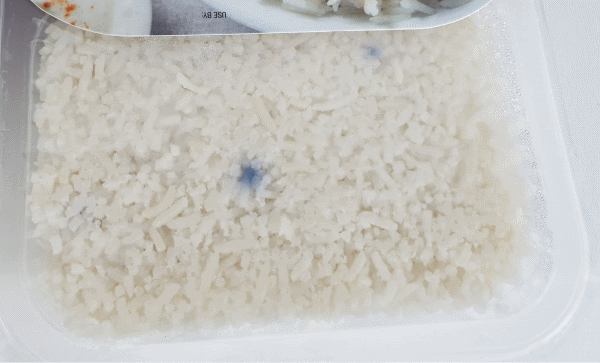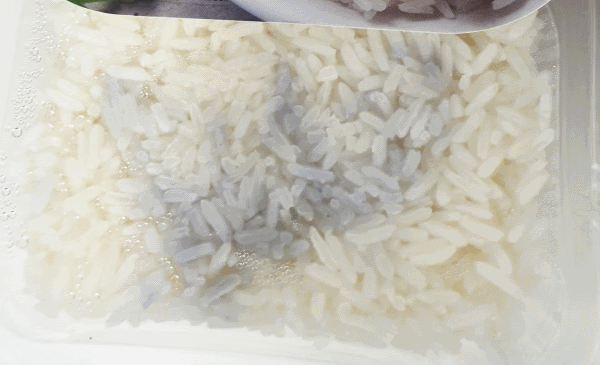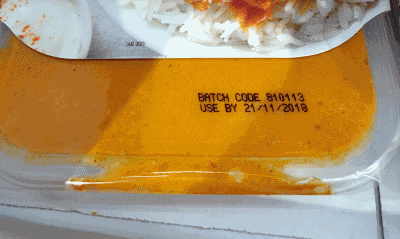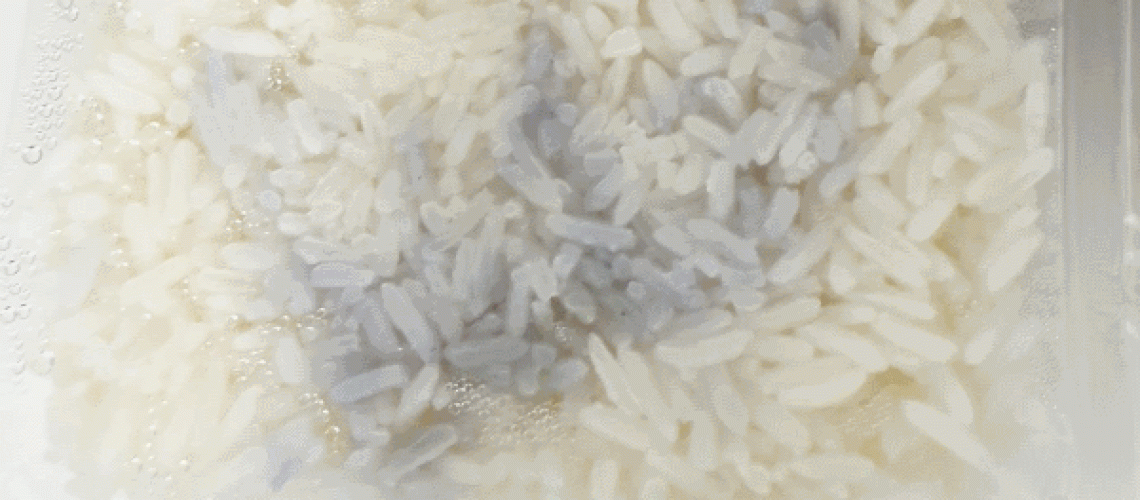
We enjoy a certain supermarket brand of ready-to-serve meals. They are inexpensive and ready to eat within minutes. They taste good and beat driving to the Indian or Thai restaurants on busy days.
That is, until you find spots in the rice.
That’s when you wonder what the others are like.
It turns out that ALL of the meals you have are contaminated.
These were purchased last week. We have already eaten 3 and the remaining 5 are spotty.
And not just a little bit spotty. You can see that some are really coated with whatever it may be.

We return to the supermarket and speak to the store manager. He offers to replace the 5 units (very kind of him).
It turns out that there are some on the shelf that have the same issue.
Here’s the problem:
The new items on the shelf have the same problem as our items that were bought a week ago.
This isn’t a problem limited to our batch. It’s not a problem that is limited to our shipment (may be the truck was hot).
This is a problem that is present in stock manufactured a week apart, delivered in different vehicles, and is already starting to become visible.
But wait, there's more...
So we decided to skip the particular type that had spotty rice. We started looking at the others.
That’s when things became very interesting. This is what we found..

About 20% of the items were spilling out somewhere. Some of them had spillage out of the corners, and as shown in this photo, some were along the edge.
BUT THIS IS THE MEAT AND SAUCE, NOT JUST THE RICE.
The meat is being exposed to air. Bacteria is now free to reenter the food. Any protection offered by the vacuum sealed container has now been lost.
This is no longer safe to buy!
We didn’t swap our meals. Instead we received our money back on the 5 we still had.
The store manager withdrew the stock from sale after we left. It was not fit for sale and the store manager did the first step in rectifying the problem.
The problem was obvious...
To us it was obvious that the seal around the edge isn’t up to the task. Air is getting in and sauce is getting out. On some it was lifting a little and on some quite significantly.
But this is a manufacturing issue, not a store issue.
Which, if true, means that every store has the same problem.
What do you think the supermarket should do next?
We contacted the supermarket head office to find out what they will do next. They will get back to us within 2 days.
But what do YOU think they should be doing?
This is a meat and rice based product that can cause severe food poisoning. It is microwaved and people often don’t heat it up sufficiently, especially if they freeze it.
This is a problem that has existed for at least 1 week, and still exists.
Should they do nothing?
Let’s not even put this one up as a serious option.
Is an internal review sufficient?
Is just getting back to the manufacturer and having them rectify the problem enough?
After all, we are the only ones to complain and people haven’t started having food poisoning yet.
What about removing stock from shelves nationwide?
Given that this is one of the big supermarkets, should they be pulling all stock of shelves across the nation?
It will be costly, and it may be a number of days before the problem is solved. That’s a big hit to revenue.
Is this what you would expect them to do?
Or go all out with a recall?
The final step after removing existing stock is to actually go to the public and ask for the product to be recalled.
This is very expensive. They need to engage the media, and it has a big impact on the brand’s reputation.
But do you know what are the consequences of food poisoning and there is probably a lot of stock that has been severely compromised.
What do you think?
We are hoping that a certain level of response will occur before we mention names. It would be nice to know that the supermarkets have a higher level of concern then we do.
But what do you think is appropriate in this situation?
